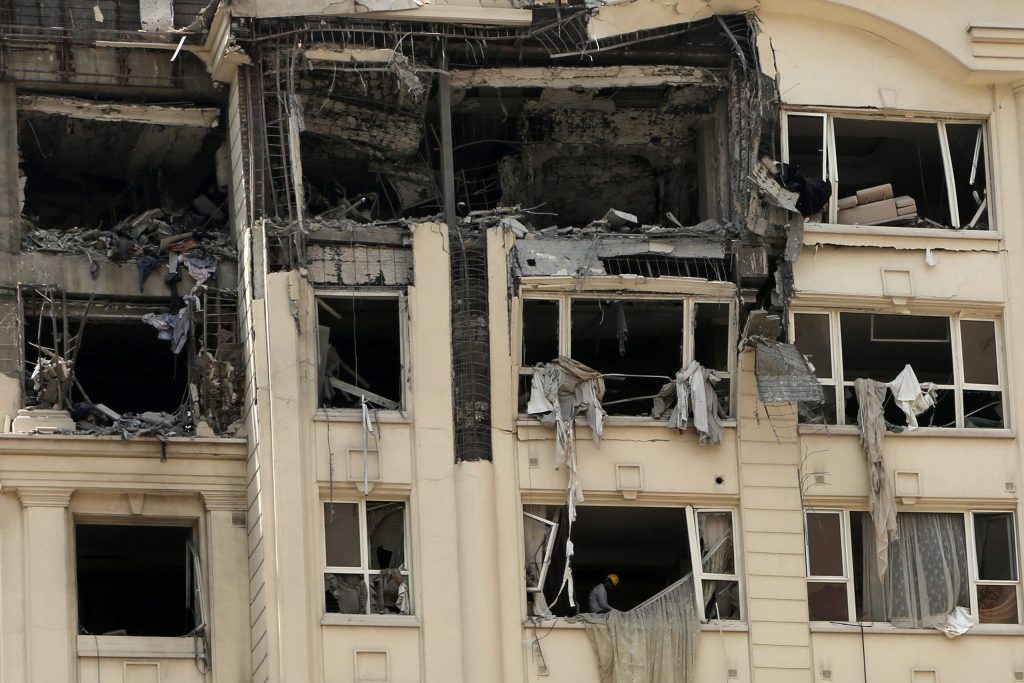On Friday, Israel launched a significant military operation, targeting over 100 sites in Iran, marking a pivotal moment in the ongoing tensions between the two nations. In response, Iran executed a drone counterattack, and Israeli officials stated these strikes were merely the initial phase in a broader campaign against Iran’s nuclear capabilities. Global reactions have varied, with officials calling for restraint while expressing deep concerns regarding the escalation.
| Article Subheadings |
|---|
| 1) Regional Reaction to Israel’s Strikes |
| 2) Responses from Major Nations |
| 3) European Nations Urging Restraint |
| 4) Global Calls for De-escalation |
| 5) Summary of the Situation |
Regional Reaction to Israel’s Strikes
Iran’s Foreign Minister, Abbas Aragchi, accused Israel of declaring war and insisted that the U.S. played a crucial role in coordinating the attacks. He stated, “Israel’s aggression against Iran could not have been carried out without the coordination and approval of the United States.” Iran’s Foreign Ministry emphasized that the nation would hold Washington accountable for the repercussions of these actions. They characterized the airstrikes as a blatant violation of Iran’s sovereignty.
Additionally, Iranian leadership stated that they would pursue all necessary measures to defend themselves against what they perceive as existential threats from Israel. This rhetoric underscores the high stakes involved in this ongoing conflict, with both nations bracing for potential escalations in hostilities.
Responses from Major Nations
The Kingdom of Saudi Arabia condemned the strikes as a violation of international law, emphasizing the need for dialogue rather than military action. The Saudi Ministry of Foreign Affairs released a statement expressing “strong condemnation and denunciation” of Israel’s actions, claiming that such attacks undermine Iran’s sovereignty. Additionally, Saudi Foreign Minister Faisal bin Farhan engaged in discussions with his Iranian counterpart, advocating for peaceful resolutions to disputes.
Qatar also raised objections, labeling the military offensive as a blatant violation of international norms. The Qatari foreign minister met with Iran’s ambassador to discuss ways to strengthen diplomatic ties amid growing tensions. In a similar vein, the United Arab Emirates and Turkey joined the chorus of condemnation, urging an immediate halt to hostilities.
European Nations Urging Restraint
In Europe, leaders have expressed a mix of concern and support for Israel’s right to self-defense. Israeli Foreign Minister Gideon Sa’ar communicated with several European officials who confirmed Israel’s right to defend itself but urged for restraint to prevent further escalation. German Chancellor Friedrich Merz affirmed this stance, stressing the need for both sides to avoid actions that could destabilize the region.
France’s President Emmanuel Macron echoed these sentiments, reiterating France’s condemnation of Iran’s ongoing nuclear endeavors while supporting Israel’s right to ensure its security. Meanwhile, British Prime Minister Keir Starmer found the situation concerning and appealed to all parties to de-escalate tensions, underscoring the international community’s desire for a peaceful resolution.
Global Calls for De-escalation
Internationally, nations are urging diplomatic measures over military actions. Russia’s Foreign Ministry described Israel’s military strikes as “categorically unacceptable,” highlighting the potential catastrophic consequences of such actions on regional and global stability. This viewpoint aligns with China’s, which criticized the strikes as violations of Iranian sovereignty and expressed readiness to assist in de-escalation efforts.
Japan’s Foreign Minister, Takeshi Iwaya, termed the strikes “deeply regrettable,” emphasizing that military force undermines ongoing diplomatic negotiations. Echoing similar thoughts, other Asian nations voiced their opposition, showing a unified international demand for restraint and peaceful discussions to resolve conflicts.
Summary of the Situation
The recent military strikes by Israel mark a critical juncture in Middle Eastern geopolitics. As Israel eliminates perceived threats from Iran’s nuclear ambitions, the global community’s concern and condemnation underscore the potential for escalating violence. Leaders around the world are calling for diplomatic solutions to avert a heightened conflict and promote future cooperative efforts to maintain regional security. With each nation taking a definite stance, the precarious balance in the Middle East continues to be a focal point of international diplomacy.
| No. | Key Points |
|---|---|
| 1 | Israel launched attacks on over 100 targets in Iran, igniting significant regional tensions. |
| 2 | Iran’s officials claim that the U.S. was complicit in the attacks, calling it a declaration of war. |
| 3 | Saudi Arabia, Qatar, and Turkey condemned Israel’s actions, calling for dialogue and de-escalation. |
| 4 | European leaders confirmed Israel’s right to self-defense but urged for restraint to prevent further conflict. |
| 5 | Global reactions illustrate a strong opposition to military escalation, emphasizing the need for diplomatic solutions. |
Summary
The military actions by Israel against Iranian targets have initiated intense global scrutiny and varied responses from nations around the world. The ramifications of these strikes are profound, suggesting a potential shift in the already fragile political landscape of the Middle East. With calls for restraint echoing from multiple fronts, the situation remains volatile, emphasizing the urgent need for diplomatic engagement to ensure stability and prevent further escalation of hostilities.
Frequently Asked Questions
Question: What was the reason behind Israel’s military strikes on Iran?
Israel’s military strikes were aimed at preventing Iran from furthering its nuclear ambitions, seen as a threat by Israeli officials.
Question: How did Iran respond to the Israeli strikes?
Iran retaliated with a drone counterattack and declared the strikes a declaration of war, holding the U.S. responsible as an accomplice.
Question: What reactions were observed from global leaders regarding the strikes?
Leaders worldwide expressed a mix of condemnation and support for Israel’s right to defend itself, with many urging for diplomatic solutions to resolve the conflict.
